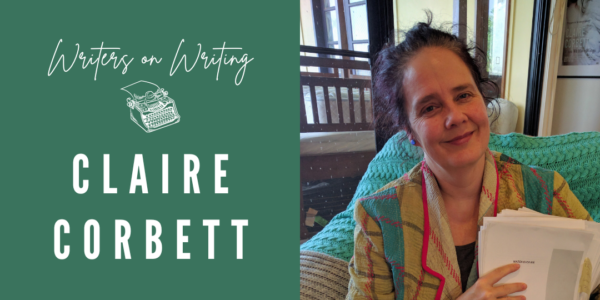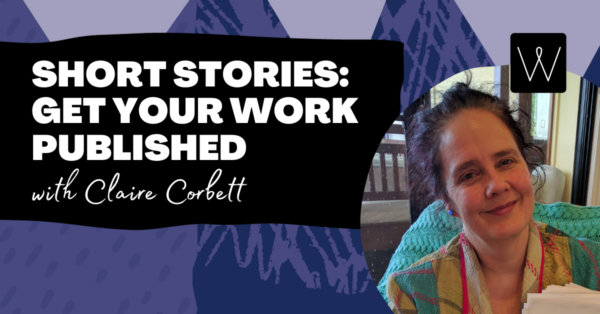
Writers on Writing is our regular conversation with a writer or industry professional about the writing craft, industry insights, and their own practice. This week, we spoke to writer and Fiction Editor of Overland literary magazine, Claire Corbett, about the ins and outs of short story publication, ahead of her workshop Get Your Work Published: A Short Story Workshop.
How has the short story’s place in the Australian literary landscape changed over time? Have the stories themselves changed?
It’s possible more people used to read short stories, whereas now they might read Substacks or Ao3 fanfic or listen to podcasts – the first issue of Bruce Pascoe’s magazine Australian Short Stories was launched by then PM Bob Hawke in 1982 and that first edition sold 12,000 copies. No Australian literary journal has print figures like that now, but I’m not sure what the figures for readers look like overall, because many read the stories online.
The stories have changed a lot, and that means their place in the literary landscape has also changed. One of the biggest changes is the move away from straight realism or naturalism. I’m reading through the incredible digitised Overland Archive, and the stories from the 1950s develop in a direct line from Henry Lawson’s realism. There is an ethical preoccupation, especially for Overland, in representing the real lives and struggles of working people. That is still important to Overland, but we don’t take the view that only pure realism or naturalism can do this. There is much more experimentation with style and form.
A huge change is that stories are much tighter now; they don’t include long passages of repetitive dialogue just because that is true to the way people speak. Or if they do include this, we cut it out. Some of this change is because of the advent of television, I think. There’s no point in stories producing slabs of dialogue in a supposedly realistic way when television can do that so much better.
Short stories have to provide surprising and different experiences for the reader. And of course the subject matter changes – stories of climate change and environmental collapse are common now – as they should be. The challenge of this is in finding what the short story form can bring to such themes that nonfiction does not. On the whole, short fiction is leaner but more immersive and richer in sense detail than the older works I’m reading, which can be quite dry. Maybe this has something to do with the increase in creative writing courses.
It’s the most surprising and delightful form, and I would love for more people to discover how exhilarating reading short stories can be. They can stick in your mind in a way many novels do not.
As Fiction Editor of Overland literary magazine, is it difficult to make the final decision on who to include and who to reject?
It depends. Each story submitted has up to three separate assessments by different readers, so quite often there is a consensus about what works and what doesn’t and whether the piece is ‘an Overland story’. I don’t enjoy rejecting stories and I especially don’t like it when it’s a good piece of work but I can’t quite see how to make it publishable. Some stories are easy to fix; some aren’t. Some stories are easy to accept – they are good stories that are right for Overland. Some stories that are perfectly good have to be turned down because we can’t publish everything that is worthy of being published. I am conscious that being published in Overland is a significant honour and many writers let me know how strongly they feel that.
What is a common mistake short story writers make when submitting to journals?
The most common mistake, by far, is not reading enough contemporary short fiction, and equal first place with that is not reading the journal you’re submitting your work to. It’s glaringly obvious to me, as fiction editor, if you don’t read Overland when you submit your work. Many writers I publish love and respect what Overland does and it shows in their work; they are very aware of what Overland is looking for – which is very broad, I hasten to add, but does have some consistent features. If you don’t read much contemporary short fiction, your work will likely have a kind of stale air to it; it will draw on work that was popular decades ago.
Here are some beautiful and thought-provoking stories Overland has published in the last few years to give readers an idea of what I mean: ‘Breathing lessons‘, ‘Espalier‘, ‘Australians at work‘, ‘Using the method‘, and ‘New face in the fight against poverty‘.
Is it worth resubmitting a previously rejected story to the same journal or to others?
Overland does not allow resubmission of a previously rejected story UNLESS the editor specifically requests a ‘rewrite and resubmit’, which is unusual and an opportunity the writer should grab with both hands. This is the case with virtually all journals and publishers. However, it’s definitely worth submitting to different journals. I have seen stories I’ve rejected published in other literary journals.
What are some other excellent short stories you’d recommend as vital reading for writers looking to improve their skills in the form?
Any story by George Saunders. Stories by Chekhov, of course, and by Lydia Davis and Joy Williams. Listen to the free New Yorker podcast of writers reading their short stories. If you want to write speculative fiction, read Kelly Link, Ted Chiang and Ken Liu. Raymond Carver and Alice Munro and Margaret Atwood of course and Peter Carey – there’s a very good reason a short story award is named after him. And of course the Overland fiction recommended above.
I also recommend Australian writer Josephine Rowe’s book of short stories, Here Until August and Elizabeth Tan’s Smart Ovens for Lonely People and Julie Koh’s Portable Curiosities and Ellen Van Neerven’s Heat and Light. I could go on of course.
Dr Claire Corbett is a writer of novels, short fiction and creative nonfiction. She lectures in Creative Writing at the University of Technology, Sydney, where she has taught the short fiction subject to MA students for a number of years. She is the fiction editor of Overland Literary Journal.

If you want to be the first to read great advice, prompts and inspiration from our incredible tutors, subscribe to our weekly e-newsletter Newsbite.
More from Writing NSW
Check out our full range of writing courses in Sydney, our online writing courses and our feedback programs to see how we can help you on your creative writing journey. Find out about our grants and prizes, as well as writing groups across NSW, and sign up to our weekly newsletter for writing events, opportunities and giveaways.
